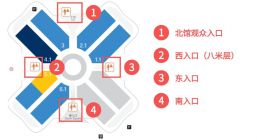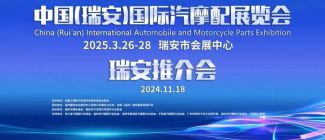Scan QRCode

For Ford, a century-old company with huge capacity, a big leap from power batteries to electrification is likely to be the start of a "synergy effect".
Ford Motor's new CEO Jim Farley said the automaker is "definitely" interested in following tesla and GENERAL Motors in making its own power batteries, Reuters and CNBC reported.

In September, Former Ford CEO Jeff Hankart told investors there was "no advantage" in a battery strategy that followed Tesla's lead and built its own battery factory to make itself self-sufficient.
Considering the close cooperation between Ford and Volkswagen in the field of electrification in recent years, the latter even invested a huge amount of money to build an exclusive electric platform, some insiders believe that Ford's introduction of power battery may be intended to cooperate with Volkswagen and give full play to synergies to promote electrification together.
Electrification "Strategic Alliance" with Volkswagen
In early 2019, Ford and Volkswagen officially announced that they would form a strategic alliance with a wide range of businesses. "The new strategic alliance will enable the partners to share costs on vehicle architectures with unique features and technologies, thus significantly increasing business scale and operational efficiency," ford said.
The two companies, both leaders in the light commercial vehicle market, also decided to launch commercial vehicle models and mid-size pickup trucks jointly developed for the global market as early as 2022.
Ford and Volkswagen also signed a memorandum of understanding to explore cooperation in autonomous driving, smart mobile travel services and electric models.
In June, Ford and Volkswagen formally signed a strategic alliance agreement. According to the agreement, the two sides will launch jointly developed commercial vehicles and medium-sized pickup trucks in 2022, and plan to produce a total of 8 million units during the cooperation period. Ford will build a pure motor model based on Volkswagen's electrified MEB platform, with an annual capacity of more than 600,000 vehicles.
In the field of autonomous driving, as Volkswagen completes its investment in Argo AI, an autonomous driving platform company, the two giant car companies will cooperate with Argo AI respectively to develop autonomous driving models on a large scale.
Mass electrification has obvious advantages
In April 2017, Ford Motor released its China Electrification strategy, announcing that it would launch a plug-in hybrid Mondeo Energi and a pure electric SUV in the Chinese market. The powertrain system for electric vehicles is planned to be produced in China from 2020; Ford plans to launch more electric vehicles in China by 2025, with electric versions of 70 percent of its Models in China.
So far, there is only one version of Mondeo Energi in China for 2018, which has been discontinued. In August 2019, Ford launched its first all-electric EV model in China, and its average monthly sales have hovered around 4,000 units.
Off to a bad start, Ford electrified China quickly but with little success. The Volkswagen group in the alliance, on the other hand, was aggressive in the electrification process.
Starting from 2016, Volkswagen Group released the "2025" strategy, regarding electrification as one of the most core strategic cornerstones in the next 10 years, and announced in the following year that it would build an exclusive electric MEB platform for electric vehicles. In 2018, THE Volkswagen Group announced that it would spend 44 billion euros (about 342.1 billion yuan) on renovating and building factories, developing and producing electric cars, and investing in autonomous driving technology.
Not only that, VW also sets up a joint venture with JAC Automobile. Up to now, Volkswagen group has realized the increase of capital and holding of JAC Automobile, and promised to introduce more pure electric and hybrid models to JAC Volkswagen.
Integrated battery production may bring about cooperative effect
In May this year, Volkswagen acquired The company with 8 billion yuan after unveiling two pure electric models, ID.3 and ID.4. According to the statistics from the Research Department of Power Battery Application Branch, In the total installed capacity of power battery in China in 2019, Guofang High-tech ranks the third with 3.31GWh installed capacity and 5.33% market share.
Bai Yiyang from The International Department of China Merchants Bank believes that in a general sense, batteries account for the largest proportion of new energy vehicle cost, accounting for about 30-50% of the vehicle cost according to different models, and also determines the performance of the vehicle. Therefore, some oems, such as Tesla and GENERAL Motors, have chosen joint ventures or self-built battery factories.
From the technical point of view, guoxuan high-tech has its own lithium iron phosphate battery research and development production strength. From the perspective of production capacity, the power battery supplied by Ningde Era to Volkswagen in 2019 is 1.1GWh, accounting for 88%. Volkswagen has become overly dependent on Ningde Era for power battery.
For Ford, matching Vw's battery weakness may be less risky than spending €50bn on the full scale. What's more, the power battery market is still growing, and LG Chem and Ningde Era are already making a lot of money. Self-built battery factories, on the one hand, can solve Ford's own supply chain problems, but also can strengthen the collaboration effect with Volkswagen Group.
Not only that, but as Ford's new CEO says, electric cars have 40% fewer components than petrol-powered ones. As electric cars gain in share, how to balance the number of jobs has become another problem for the century-old auto company. By building your own factory to produce batteries, you can reduce layoffs and convert redundant capacity.
Interestingly, Ford seems to have been on the weak side of its alliance with VW. This "backtrack" proposed the production of batteries, I wonder whether it can provide another partner for THE "battery reserve army" of Volkswagen in China, Guoxuan High-tech.
AMS2024 Exhibition Guide | Comprehensive Exhibition Guide, Don't Miss the Exciting Events Online and Offline
Notice on Holding the Rui'an Promotion Conference for the 2025 China (Rui'an) International Automobile and Motorcycle Parts Exhibition
On September 5th, we invite you to join us at the Wenzhou Auto Parts Exhibition on a journey to trace the origin of the Auto Parts City, as per the invitation from the purchaser!
Hot Booking | AAPEX 2024- Professional Exhibition Channel for Entering the North American Auto Parts Market
The wind is just right, Qianchuan Hui! Looking forward to working with you at the 2024 Wenzhou Auto Parts Exhibition and composing a new chapter!
Live up to Shaohua | Wenzhou Auto Parts Exhibition, these wonderful moments are worth remembering!
Free support line!
Email Support!
Working Days/Hours!





